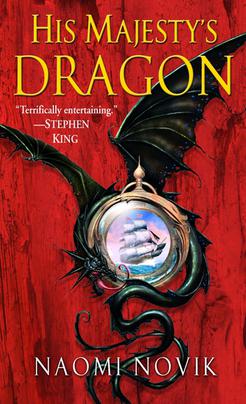 Young Miles (omnibus edition) by Lois McMaster Bujold
Young Miles (omnibus edition) by Lois McMaster Bujold
Read in August 2009
The Warrior’s Apprentice
3.75 stars
Read as part of the omnibus edition Young Miles
I warped through this novel in record time, finishing almost before I realized it, because it was so much fun to read. I returned to the world of Barrayar and the Vor to pickup Miles at age seventeen. And how much trouble can one 17 year old “cripple” get into in say four months time? An astonishing amount apparently.
I am grateful that I first read Cordelia’s Honor so I had the back stories and histories of some of the supporting characters and I fully understood Miles’ disabilities.
Miles makes up for his physical disabilities with intelligence, logic and grace seemingly far beyond his years. My only small quibble with the story was Miles maturity – he felt more like a 37 year old than a 17 year old.
I will refrain from a synopsis to avoid spoilers. If you love space opera, pirate-like adventure or Robin Hood-esque escapades and secret/alternate lives and identities, then you’ve come to the right novel.
The Mountains of Madness
3.75 stars
This novella was sandwiched between Warrior’s Apprentice and The Vor Game in the omnibus edition entitled Young Miles.
It occurs three years after the end of Warrior’s Apprentice. Miles has graduated from the Imperial Service Academy and is home on leave before receiving his first assignment. A back country woman from the Dendarii mountains has come down to the lowlands demanding justice, as is her right, from her Count in the murder of her “mutant” infant. Miles’ father deputizes him as his Voice to investigate and dispense justice. Miles’ disabilities make him uniquely and ironically qualified to flush out the murderer.
Not much science fiction or space opera in this story, but plenty of mystery and hillbilly conservatism and ignorance. Miles excels at the logic and deduction necessary to uncover the culprit. He also find a justice that speaks to all the generations of the Silvy Vale.
The Vor Game
3.5 stars
I read this as part of the omnibus edition Young Miles.
We return to Miles while he and Ivan are collecting their first duty assignments after graduating from the Imperial Security Academy. Miles yearns for ship duty. Ivan receives his orders stationing him in the capital at ImpSec HQ. Miles orders send him to the farthest reaches of the Barrayar arctic as the weatherman for Kyril Island. Miles questions his assignment, especially since he only took one perfunctory meteorology course his first year of academy. He learns the duty assignment is a test to see if he can work with, lead and be led by common (not Vor) soldiers. If he passes, his carrot is ship duty on the newest ship-of-the-line, the Prince Serg.
Miles’ insubordination plays a major them in this story. He stumbles into the most improbable situations and then believes only he is capable of finding a way out of it, ignoring the advice and orders of his colleagues and superiors. It doesn’t help that he actually does succeed in saving the day.
I enjoyed the action and intrigue, including more space opera elements, especially in the climactic space battles for control of various strategic wormholes. Parts of the story bogged down, though, especially after Miles removal from the arctic and subsequent detention. And I almost stopped reading when I had to suspend belief almost completely regarding the unlikely scenario of Miles finding Gregor off-planet and working as slave labor on a space station.
It was a fun read, but not as fun as Warrior’s Apprentice, yet it won the Hugo in 1991. To date, I’ve read four novels in Bujold’s Vorkosigan Saga. I recommend this book as well as the series to all loves of space opera.





 The Eye of the World
The Eye of the World


